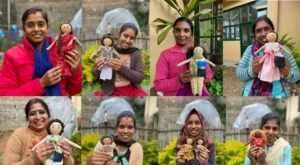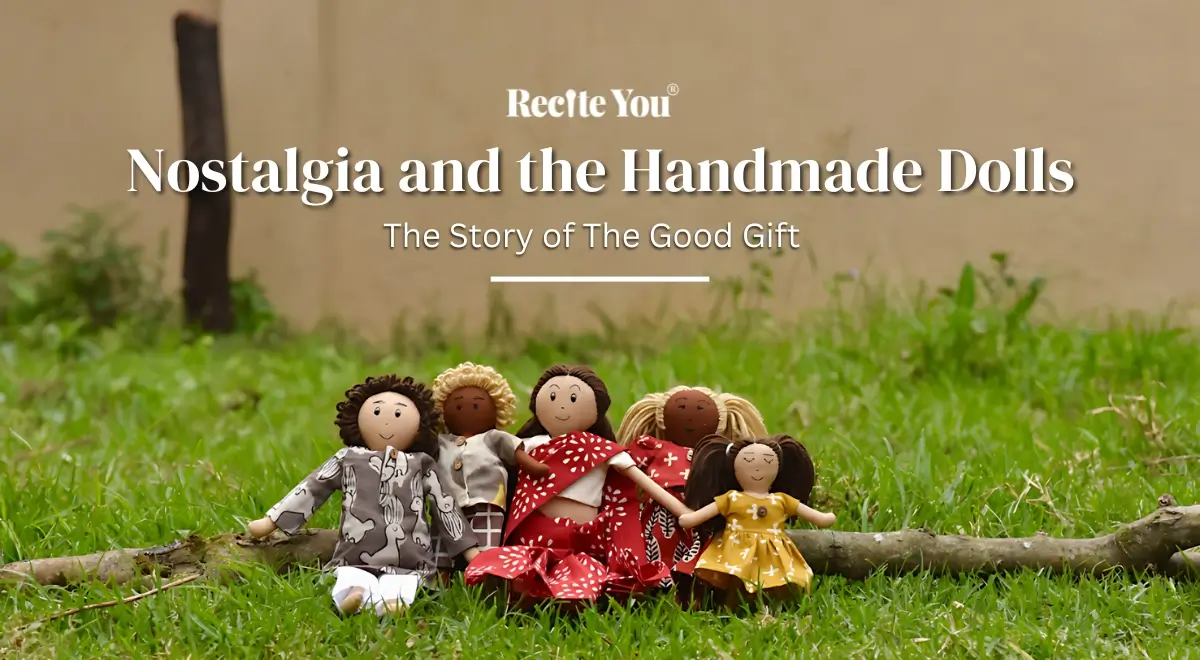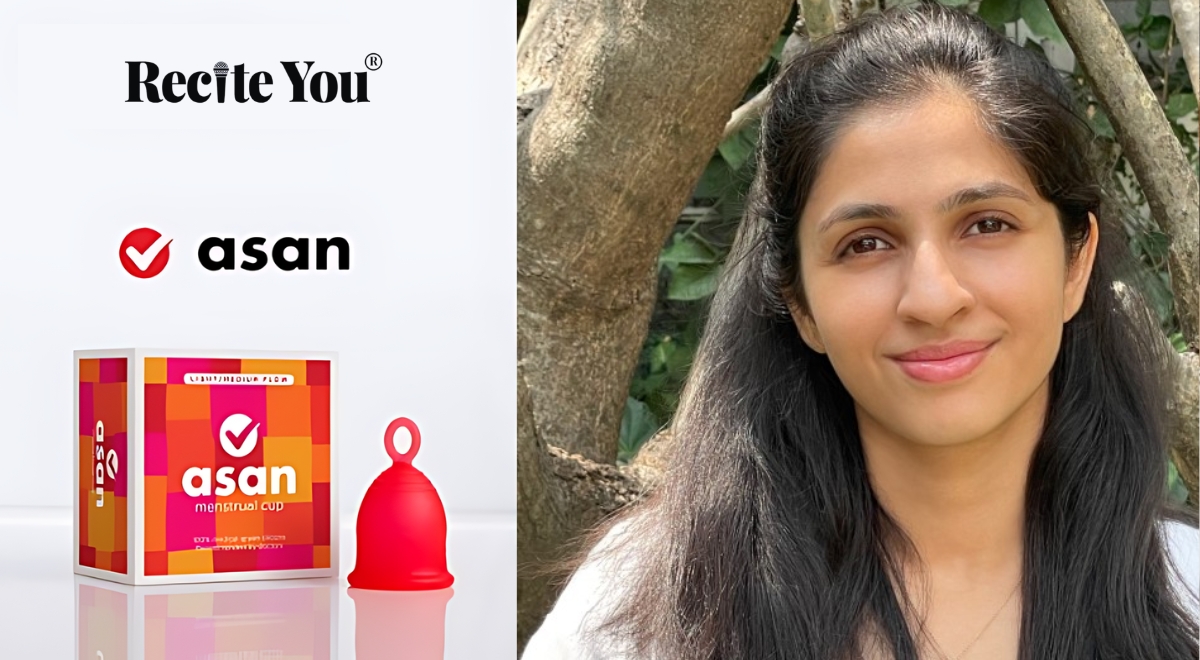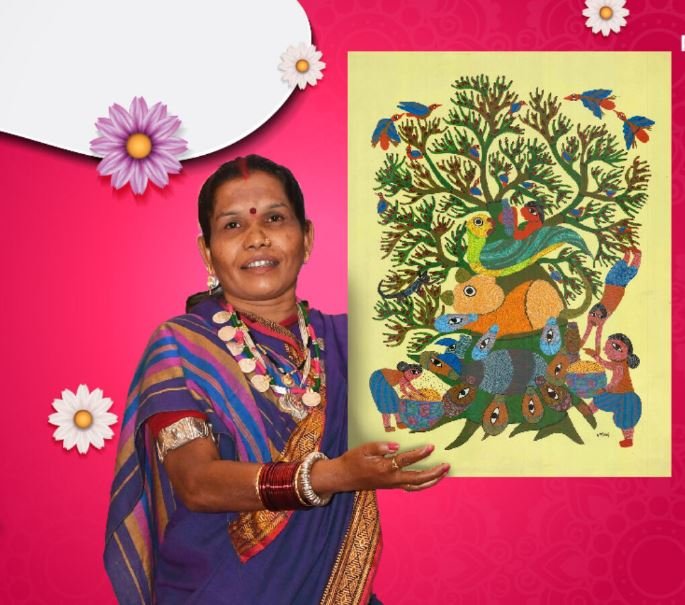The Story of The Good Gift: Introduction
In those days, dolls made of cloth were among the most favourite toys for kids. These simple playthings were made by hand from scraps of cloth and bits of yarn and yet they captivated the young minds in numerous generations and cultures. They had buttons for eyes and soft bodies that were cuddled like babies or used during imaginary expeditions. Therefore, fabric dolls became precious to all children.
These dolls at some point stopped being mere toys- they turned into blank canvases on which children could draw their dreams, hopes, and little characters. Then, when life was much simpler without electronic devices; a doll made using fabric was a cherished possession because it allowed children to imagine without any structure or rules.
It took grandmothers hours to sew these cute creations tenderly as they filled them with love, warmth, tradition handed down through ages. Each doll was distinct bearing the personalization and skill with which it had been created. This is what turned them into keepsake toys passed down between generations with pride in heritage.
Nevertheless, this began to change in the course of centuries as industrialization blew across the world like a stormy wind. Mass-manufactured plastic toys of bright coloration, rigid shapes and mobility began to be more popular among kids. These dolls replaced fabric toys which were handmade and passed from generation to generation.

However, with each passing decade nostalgia eroded away the allure of a doll made of cloth as new plaything fashions came into being for the masses that sought out disposable goods. By the end of the 20th century, it was almost completely forgotten that ordinary fabric dolls used to exist; they appeared as relics of a bygone era.
But down south in India’s Blue Mountains, hidden amidst mist filled valleys and towering mountains, there is now an awakening taking place. Working under ‘The Good Gift’ name, one business firm is bringing back this traditional art form but with different objectives and global outreach. They desire that these indigenous communities will once again embrace this doll hence providing them with economic upliftment through fair trade jobs opportunities.
The Good Gift is made by the skilled hands of women artisans from rural villages living in the Nilgiri mountains. At the end of their evening household chores, these women come together to share laughter and talk while performing an extraordinary ritual that revives the age-old cultural practice of doll making.
Callous fingers but gentle due to years of hard labour, artisans carefully woven together a range of colourful scrap fabrics and reclaimed materials using nimble fingers. Strand by strand and piece by piece, their imaginations come alive as they create whimsical fabric dolls that transcend cultures and generations. Each one is unique, with traits showing off an individual artist’s style.
If you look closely at one of these handmade marvels, you can almost hear the stories whispered into its stitches – stories of perseverance, determination, and hope told by the maker. The different textures ranging from soft cotton to nubby wool are reminiscent of one’s sense of touch during childhood but also suggest some care plus skill used in handling them.
To these artists, doll making goes beyond being merely a job or a creative activity. It is the way to earn fair pay and have cultural values preserved as globalisation threatens their rich traditions of handwork. The old women instruct young girls so that these skills never die.
The dolls made by this company are mostly made using environmentally friendly materials like cotton, wool and other pieces from waste textiles. That way, The Good Gift ensures that it brings down any potential negative consequences related to the environment while still exhibiting innovation and durability which were an essential part of original cloth dolls in the past centuries.
The reach and impact of this outstanding business on the world is wide spread: In a few years’ time, The Good Gift has saved over 55,600 kgs of cotton waste from going into landfills while providing stable work for its talented craft corps distributed across several villages at an income exceeding 3.5 million rupees each year. More than two hundred indigenous people’s lives have been directly transformed through equitable employment with dignity with about seventy jobs opened for rural women.
But the thing that is a true treasure are the maker cards that come with each Good Gift doll. These little notes will introduce you to the wonderful artisan who was responsible for putting together your doll, and give you a peek into her life, travel, and how she put her heart into it.
Think of how these women feel when they earn fair wages every month just by doing what they love. To many artists who would otherwise be struggling, The Good Gift is an avenue through which they can change their own lives as well as those of their families, while still being part of the rich heritage and creative identities.
In this context, doll-making becomes a source of power; it is also a way out for them from poverty. Their resources and cultural practices have been recognized as part of the global trade market payable fairly from proceeds obtained from purchase or sales of dolls.
The Good Gift’s philosophy is based on sustainability. Reclaimed and repurposed textiles are used to make the fabric dolls; moreover, their packaging is also eco-friendly. The doll comes wrapped in environmentally friendly items like cotton pouches and recycled gift boxes. This kind of ethicality roots out malpractices that have devastated the toy industry over generations.
Respected global institutions which set ethical production standards, fair trade practices and quality craftsmanship have applauded The Good Gift for its commitment to environmental stewardship, worker empowerment and cultural preservation. These prestigious certificates are a testament to its overall mission of achieving sustainable value chain management from ethically-sourced materials through decent employment opportunities.
However, there is something much greater that stands at the core of The Good Gift: joy as it connects makers, recipients and cultures emotionally through a timeless art of handcrafting.
For every doll made, it acts as an ambassador that connects its maker with the person who receives it. They become a concrete reminder of how creating something as beautiful as an object can make a person’s life better, maintain timeless cultures and show that all people on earth have shared wishes and visions.
Sunita and Suhas, the creators of The Good Gift, started this amazing journey after relocating to Nilgiri hills where they experienced indigenous population’s economic misery first hand. Outraged by the lack of sustainable employment opportunities they are providing in the region, these founders founded Indian Yards Foundation which nurtures local traditional arts, crafts and ethical entrepreneurship.
It was from these empathetic origins that The Good Gift company organically emerged as a vital artery for this social enterprise ecosystem. By providing rural artisans with reliable employment, creative fulfilment, and the means to support their families, the dolls became beacons of change. Over time this effective model has enabled workers here to become women entrepreneurs themselves.
It therefore means that The Good Gift has effects beyond those discussed above in relation to the economic benefits. When you hold one of these dolls, made with love and care, you can feel the heart and soul of the creator woven into every stitch. Each piece is a lively tapestry capturing human imagination, cultural dynamism and ancient practices that must never be forgotten.
Some customers may become sentimental as they see these well-crafted dolls which remind them about their childhood-they remember afternoons full of joy where they played around and cared for soft toys made by their father or mother. They bring back memories of how life used to be uncomplicated during the days of endless imaginations in childhood before growing up.
However, to others who are attracted to these global Good Gift Ambassadors there is a greater message conveyed. They stand for human empowerment, sustainability in ecological terms as well as how different cultures across the globe remain firm in this period of social-economic crisis. With every sold item, consumers contribute to socially responsible entrepreneurship and help build a better future for people living on different continents.
On the surface, these humble fabric dolls appear to be simple playthings, but looking closure it reveals that they embody profound, intricate concepts such as the enduring strength of human creativity, the priceless generational wisdom interwoven into cultural traditions, and the profound effects of conscious capitalism that elevates human dignity.





3 Comments
Figured I’d drop a line about mgpk777. Been playing on it for a bit. It’s alright. Could be better, could be worse. But hey, keeps me entertained. See what you think at mgpk777.
Xsmega caught my eye. Seems lottery-focused. I’m not a HUGE lottery guy, but always dream of hitting the big one, haha. Worth keeping an eye on for those mega jackpots! Check it out yourself: xsmega
Alright, who’s tried 111bets? Their site looks pretty clean. Any hidden bonuses or things I should know about before signing up? Let me know! Check it out here: 111bets
Comments are closed.